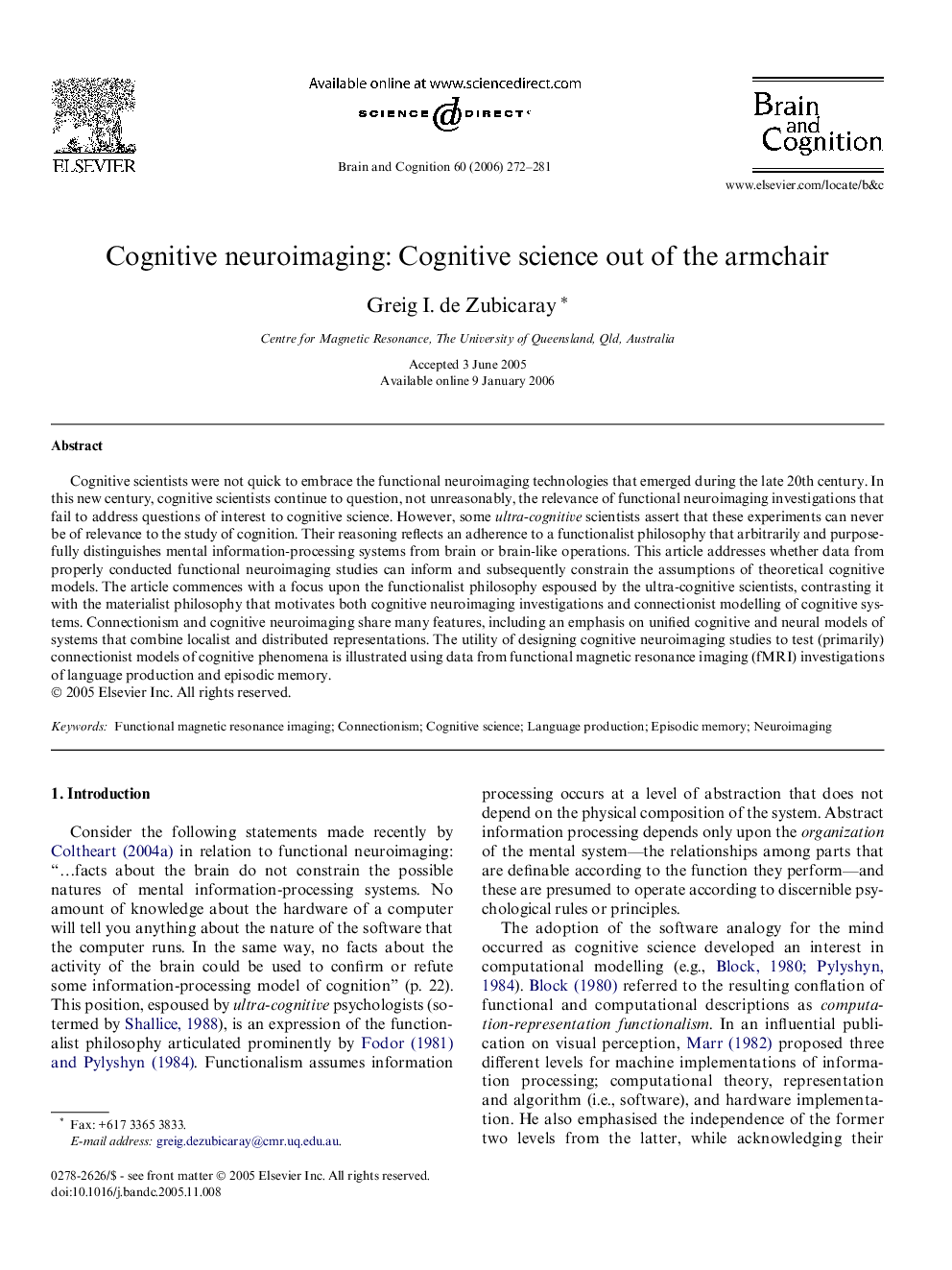| Article ID | Journal | Published Year | Pages | File Type |
|---|---|---|---|---|
| 925205 | Brain and Cognition | 2006 | 10 Pages |
Cognitive scientists were not quick to embrace the functional neuroimaging technologies that emerged during the late 20th century. In this new century, cognitive scientists continue to question, not unreasonably, the relevance of functional neuroimaging investigations that fail to address questions of interest to cognitive science. However, some ultra-cognitive scientists assert that these experiments can never be of relevance to the study of cognition. Their reasoning reflects an adherence to a functionalist philosophy that arbitrarily and purposefully distinguishes mental information-processing systems from brain or brain-like operations. This article addresses whether data from properly conducted functional neuroimaging studies can inform and subsequently constrain the assumptions of theoretical cognitive models. The article commences with a focus upon the functionalist philosophy espoused by the ultra-cognitive scientists, contrasting it with the materialist philosophy that motivates both cognitive neuroimaging investigations and connectionist modelling of cognitive systems. Connectionism and cognitive neuroimaging share many features, including an emphasis on unified cognitive and neural models of systems that combine localist and distributed representations. The utility of designing cognitive neuroimaging studies to test (primarily) connectionist models of cognitive phenomena is illustrated using data from functional magnetic resonance imaging (fMRI) investigations of language production and episodic memory.
